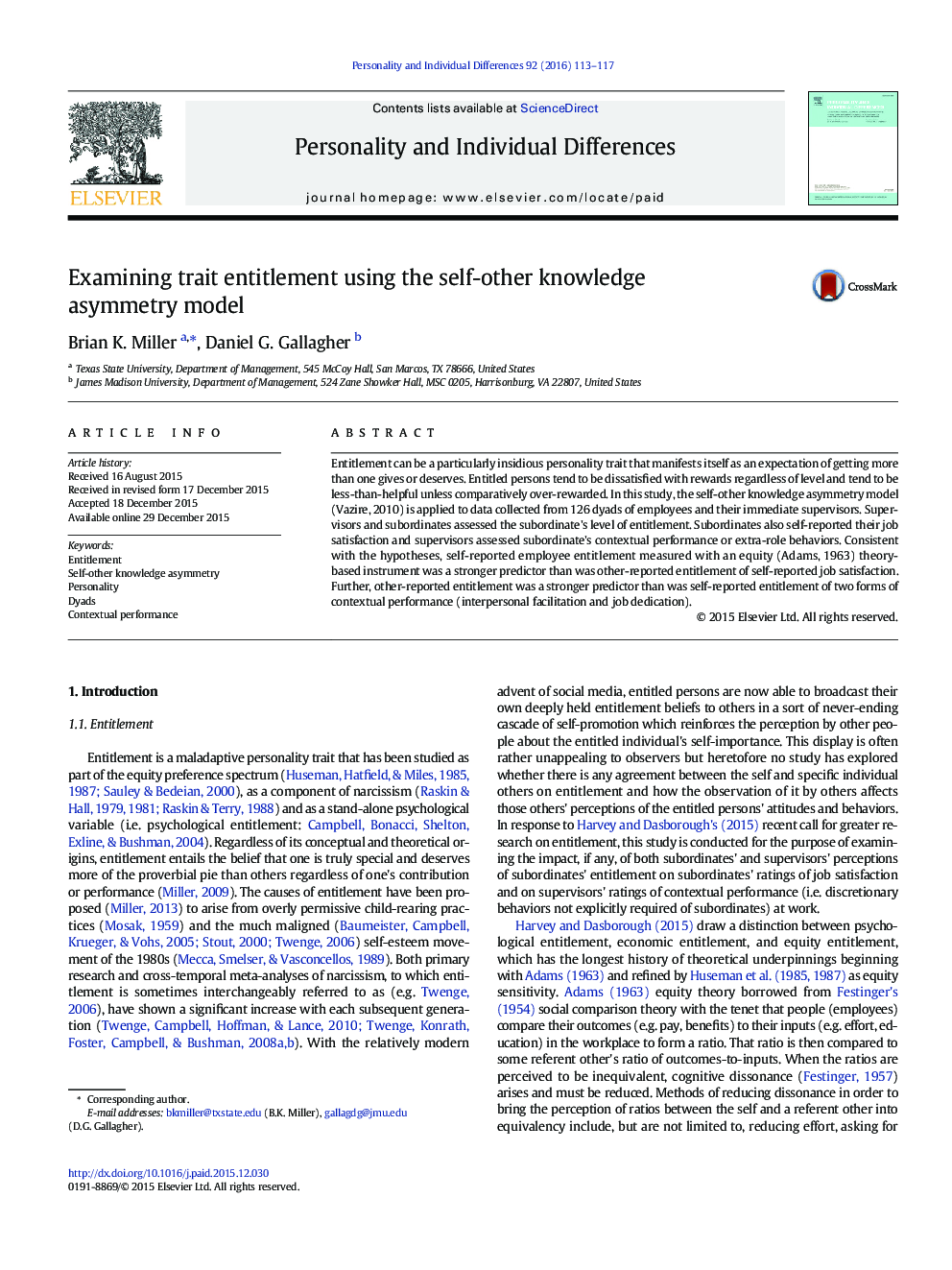| Article ID | Journal | Published Year | Pages | File Type |
|---|---|---|---|---|
| 889796 | Personality and Individual Differences | 2016 | 5 Pages |
•Equity theory based trait entitlement is measured from self- and other-perspective.•Employees and their supervisors provide data on employee.•Self-Other Knowledge Asymmetry (SOKA) model (Vazire, 2010) used as framework.•Self-report entitlement stronger predictor of job satisfaction than other-report.•Other-report entitlement stronger than self-report in prediction of performance.
Entitlement can be a particularly insidious personality trait that manifests itself as an expectation of getting more than one gives or deserves. Entitled persons tend to be dissatisfied with rewards regardless of level and tend to be less-than-helpful unless comparatively over-rewarded. In this study, the self-other knowledge asymmetry model (Vazire, 2010) is applied to data collected from 126 dyads of employees and their immediate supervisors. Supervisors and subordinates assessed the subordinate's level of entitlement. Subordinates also self-reported their job satisfaction and supervisors assessed subordinate's contextual performance or extra-role behaviors. Consistent with the hypotheses, self-reported employee entitlement measured with an equity (Adams, 1963) theory-based instrument was a stronger predictor than was other-reported entitlement of self-reported job satisfaction. Further, other-reported entitlement was a stronger predictor than was self-reported entitlement of two forms of contextual performance (interpersonal facilitation and job dedication).
